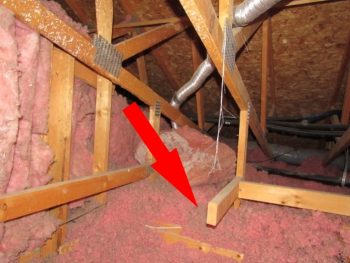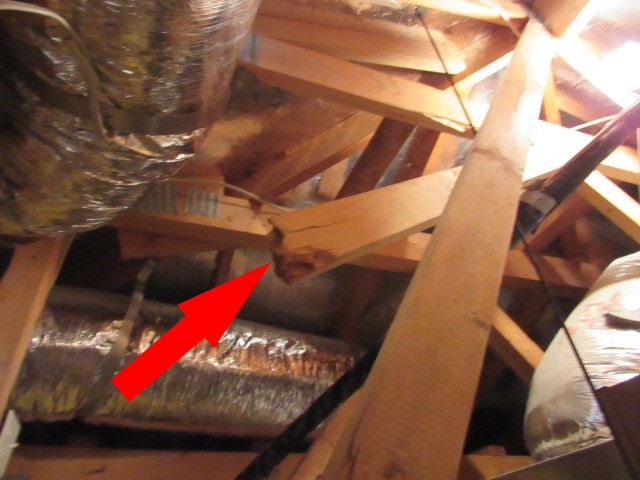A home is a major purchase, perhaps the largest many families will ever make. Hiring a home inspector to assess the current condition of that home is a generally accepted part of the home buying process. The home inspector will help you make an informed decision.
In several states the practice of home inspections is regulated. That is the case in Nevada. According to Nevada law (NAC-645D), there are three levels of Certified Inspectors of Structures (home and building inspectors); residential, general and master. Each level has certain requirements to achieve certification. While valuable as a minimum standard, these requirements are limited. A Residential ‘Inspector of Structures’ in Nevada is only required to complete a 40-hour course, pass a state exam, perform a limited number of supervised home inspections and produce a home inspection report complying with Nevada Standards of Practice.
If you agree that having confidence in the structure of the home you are purchasing is one of the singular most important pieces of the home inspection, you may be surprised to learn the Nevada Standards of Practice only requires an Inspector of Structures to identify and describe the structural components, probe for deterioration, report signs of water penetration or condensation and any visible structural damage to the framing members and foundation systems.
That inspection will not include:
- An opinion whether the structural components are adequate for anticipated loads placed upon them,
- whether they are continuing to perform their intended function, or
- the significance of deterioration or visible structural damage (rot, cracks, distortion, settlement or distress).
By law in most states, including Nevada, only a licensed, Professional Engineer (and in some cases an architect) is permitted to render an opinion as to the structural integrity or soundness of a building.
What can a consumer do to protect themselves? The single most important test is to check the qualifications of the home inspector.
A licensed Professional Engineer has, at a minimum, completed a four year accredited college program, worked for at least four years under the direction of other like professionals, and passed a 16 hour exam. He or she is required by their professional code of ethics to practice only in areas competent to do so and to be accountable for the work they do. Individuals who are in private practice who are not registered (even if they have taken engineering courses) may not call themselves engineers.
At Criterium – McWilliam Engineers, all home inspections are performed and/or reviewed by a licensed Professional Engineer in the State of Nevada. You get a professional engineers opinion about your home’s structure with every inspection.
In the end, this will save you money either by not having to hire us when your home inspector finds something and can’t provide an opinion on its significance or when you need to hire us after you’ve purchased the home because you’ve discovered evidence of something being terribly wrong.
| These photos show a few examples of one of the common structural problems we encounter. The prefabricated roof trusses have been damaged. As Professional Engineers we can help determine the significance, probable cause and suggested action to resolve the issue. |
 |
 |
Another common problem is cracking in floor slabs, stucco and drywall. Is it normal or unusual settlement, expansive soil, seismic or other condition that deserves attention? As Professional Engineers we can help diagnose the problem.
Before you hire a home inspector, who you will trust to tell you the condition of the house you intend to purchase, don’t forget to ask the most important question or all: Are you a licensed Professional Engineer and can you provide a structural opinion? Call Criterium-McWilliam Engineers at 1 702-394-4106. We will be happy to answer that question with an enthusiastic YES!
